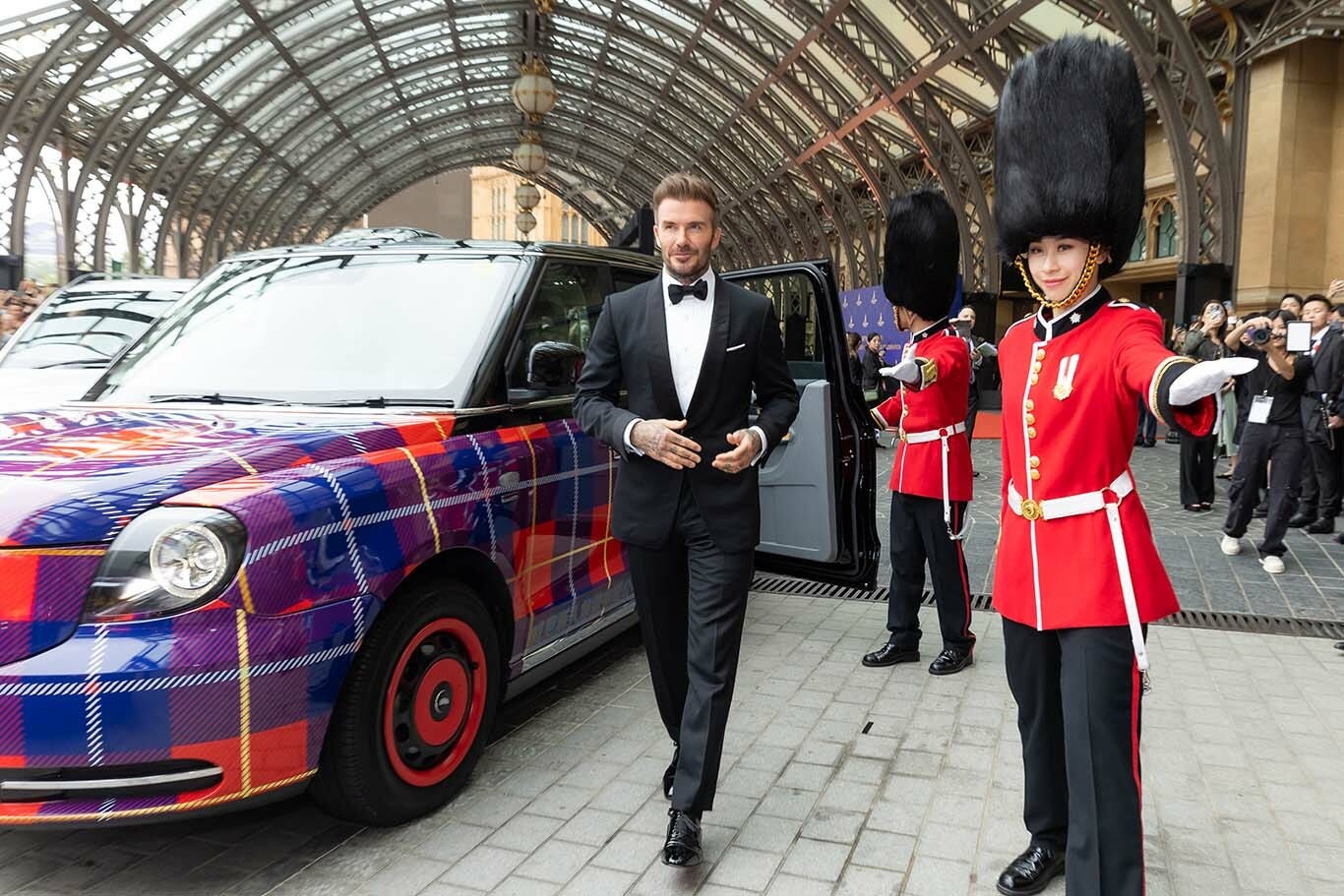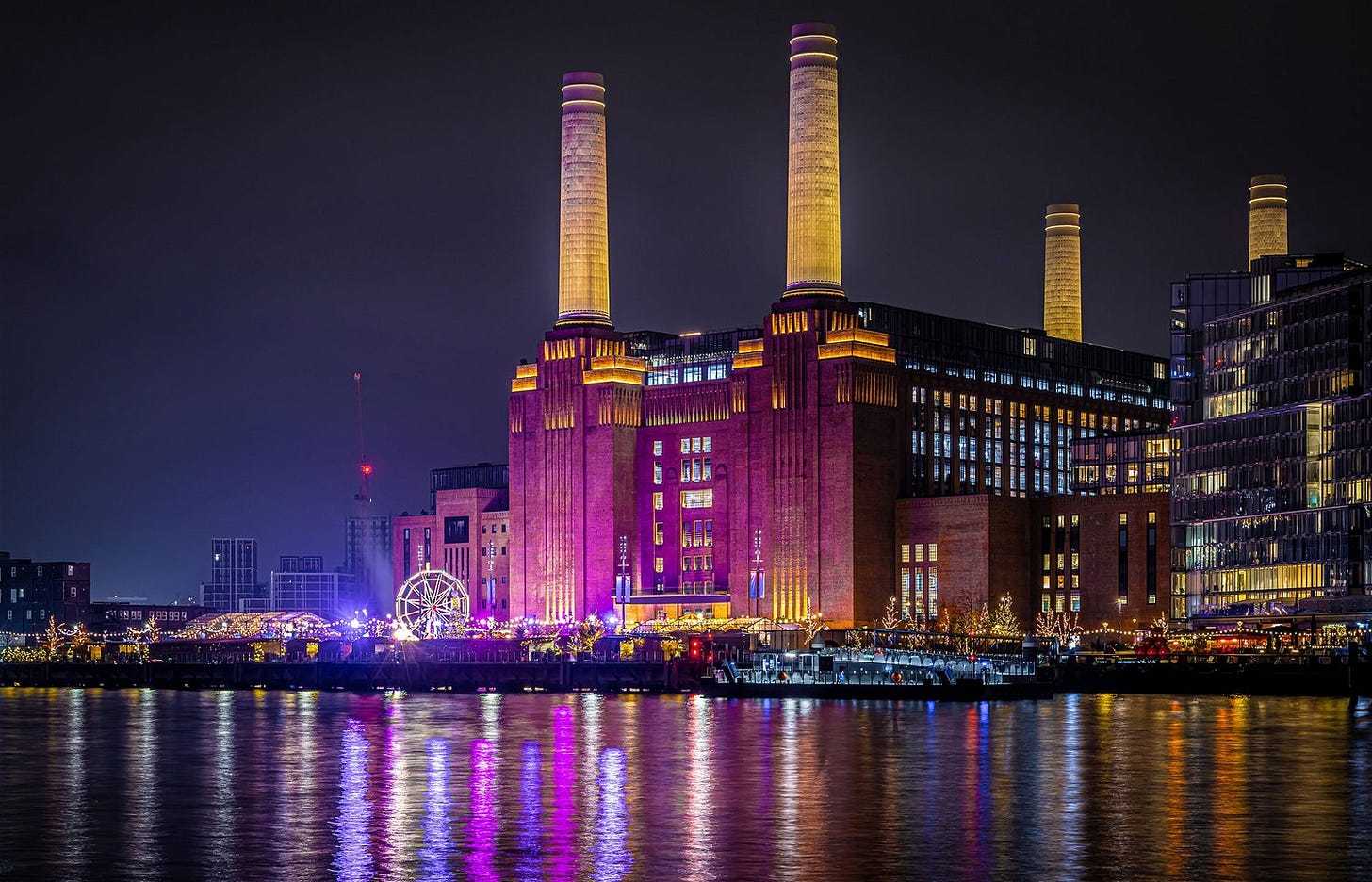London, Zombie Capital
The city is being smothered by its own global brand

In a world of mass media, we are ruled by the tyranny of comparison. We are surrounded by images of beauty and style, of fulfilment and success, that make us feel inadequate by contrast. Sometimes it is even an image of ourselves, a glimpse of what we once were or could have been, that we yearn to emulate.
What if something similar can happen to a city? Could an entire metropolis be oppressed by an idealised version of itself, as seen in films, advertising, and the imagination of the wider world? This seems to be the case in London today, and no doubt in other famous cities too. A caricature of the British capital, part period drama and part Richard Curtis romcom, has been sold to a global audience of nostalgic Anglophiles. And because London is where the UK welcomes with the world, all the other twee fantasies of Englishness are expected here as well. Increasingly, the city is being warped under the pressure of its own whimsical image.
Consider the Londoner, a new themed resort in Macau, off the south coast of China. Visitors are treated to every English cliché imaginable, from Scotch eggs and scones to David Beckham and the Spice Girls, not to mention replicas of various London landmarks. A correspondent for the Times describes it thusly:
As the actor playing Her Majesty waves demurely from a balcony, Grenadier Guards and a few Metropolitan Police bobbies dance to fanfare all around the Crystal Palace — a glass-topped atrium inspired by the building which once adorned Hyde Park. All the while, hundreds of people delightedly video this twice-daily performance… from either side of a replica of Eros from Piccadilly Circus.
…
I make pretend calls from red telephone boxes before boarding an imported, 1966 Routemaster bus. Looming near that is a full-size duplicate of the Elizabeth Tower, aka the home of Big Ben; behind, the building’s intricate lower façade apes the Houses of Parliament. Airport transfers involve vintage Rolls-Royces.
An obvious farce, yes, but a farce that many people love. Besides, the Londoner is far from the only simulacrum of British culture in China. Imitations of prestigious public schools and colleges have been cropping up around the country. One university in Hebei is modelled on Hogwarts.

The TV and film industry are of course the greatest purveyors of fantasy Britannia. Much as western audiences like exotic portrayals of the East, foreign audiences like old-fashioned portraits of England and its capital city, normally involving the upper class. Global hits include Downton Abbey and The Crown, Harry Potter and James Bond, and of course Titanic and Notting Hill. Arriving in Shanghai two years ago, the first person I spoke to referenced the 1980s comedy Yes Minister, which seemed rather niche but still proves the point I think.
It just so happens that many Europeans, Brits included, like this picture of Englishness too, but the enormous markets beyond Europe would be enough to justify it in commercial terms. As the FT’s Stephen Bush puts it, “left to the market alone, the UK depicted on screen will look rather like the India presented by The Best Exotic Marigold Hotel: not a country that any of its citizens would readily recognise, but one that reflects foreign customers’ idea of it.”
What goes for the screen increasingly goes for London itself, as the city is transformed to realise the commercial potential of its brand. Its historic centre has become a theme park rather like the one in Macau, catering to tourism, shopping and hospitality to the extent that it no longer really seems to belong to the city. Most Londoners can’t afford a drink in these areas, let alone to live or run a business there. The capital’s most famous monuments, including the buildings where the country is governed, are so tied up with marketing and merchandise that it’s sometimes surprising to be reminded they are real places.
The irony, of course, is that much of London’s living history – such as the independent bars and shops which thrived in Soho even a decade ago – has been strangled by this process. It is being replaced by something I’ve previously called zombie heritage, whereby the city’s architecture comes to resemble a series of waxworks recreating an older London for commercial purposes. In many cases, such as the revamped Battersea Power Station (luxury apartments and shopping) or the recent redevelopment of Kings Cross (prestigious art school, corporate offices and shopping), these new “old” places have essentially been designed as giant magnets for global wealth.
And make no mistake, there is money to be made from Anglomania. In 2016, an academic at the London School of Economics estimated that the Harry Potter franchise generated £4 billion for London in that year alone. The question is whether such returns can justify, in economic or social terms, surrendering much of the capital to tourism and novelty consumption.

In a recent essay, Deyan Sudjic has also noted the “creeping fossilisation” of London, as the city’s productive capacities are crowded out by the hawking of heritage. Sudjic acidly observes “the Old War Office building on Whitehall, from which Winston Churchill led the defence of Britain against Hitler, has become the Raffles OWO hotel where bed and breakfast starts at over £1,000 a night.” Meanwhile in Camden, “facsimile punks” perform for tourists “as if they were Beefeaters on parade.”
If this trend continues, encouraged by white-collar professionals evacuating the centre to work remotely, then London’s old urban core will eventually resemble a cross between Austin Powers and Hogwarts: a moribund museum of British kitsch, stretching from Shepherd’s Bush to Hackney, from Kentish Town to Southwark. By way of warning, Sudjic cites Venice, the infamous case of a city frozen in the form of a luxury destination. Maybe it’s already too late, for right next to the Londoner in Macao is another hotel and shopping complex modelled on a famous city: the Venetian.


I love this level of artifice and fakery, to see the imaginary supplanting the actual, or the actual revising itself to reflect the imaginary. It’s especially pleasing to imagine these landscapes a few centuries in the future, after some kind of civilisational collapse has occurred; the survivors rebuilding the world out of fragments of borrowed kitsch whose origins they have forgotten.
« Sudjic acidly observes “the Old War Office building on Whitehall, from which Winston Churchill led the defence of Britain against Hitler, has become the Raffles OWO hotel where bed and breakfast starts at over £1,000 a night.” Meanwhile in Camden, “facsimile punks” perform for tourists “as if they were Beefeaters on parade.”»
Similarly in Berlin, the "flak towers", which are big concrete structures made to hold anti-air guns, used in the war are now hotels for tourists. They even put "roof gardens" on it!!
By the way.. another place ruined by tourism is the Pyrenees region, in Spain. Miguel Amorós does a good piece of analysis and critique of the situation here:
https://libcom.org/article/when-barbarians-invade-periphery-commercialization-and-destruction-catalonian-pyrenees